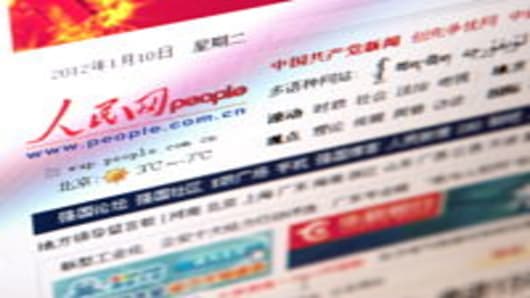China is taking another cautious step forward in reforming its media industry with preparations to list the website of People’s Daily, the ruling Communist party’s mouthpiece.
In its application, which China’s market regulator will review on Friday, the state media company said People’s Daily Online Co planned to raise up to RMB527 million ($83 million) on the Shanghai stock market.
Although people.com is tiny by comparison of its visitor traffic and business metrics to its main privately owned rivals such as Tencent or Sina, the step is a small revolution for China.
The planned IPO will mark the first time a Chinese state media website goes public, and the first time a Chinese state media company’s listing includes not just commercial but also editorial assets.
“Reforming these party mouthpieces is very difficult, and listing them is a new possibility for experimenting,” said Yu Guoming, a journalism expert at Renmin University.
The authorities have pondered for several years how to enable the state media to act as commercial enterprises and produce content that audiences find more attractive and credible without losing the power to use them as propaganda tools.
Subsequently, many provincial-level or city-level state media have become commercially successful, and most state media outlets including People’s Daily, Xinhua, the official news agency, and CCTV, the national broadcaster, have built large online operations.
But these pale in comparison with private internet companies.
People’s Daily Online had revenues of RMB 211 million and a net profit of Rmb30m in the first six months of last year, and a large portion of its revenues comes from government announcements rather than commercial advertising, it said in its IPO prospectus.
“Our revenue was 12.43 per cent of that of Sina in 2010,” the company said, adding that its advertising revenue was just 8.8 per cent of the private web portal’s, and mobile revenues only 6 per cent.
Measured in August 2010, people.com counted just 19m unique visitors compared with 514 million at Tencent, China’s largest internet company by revenues.
Although People’s Daily Online started restructuring for a potential listing in 2009 and similar preparations are under way at a dozen other state media websites including CNTV, CCTV’s online outfit, progress had stalled for most of last year.
That things are moving forward now was probably a result of a pledge by the ruling Communist party at its most important annual meeting last October to pay more attention to the cultural industry and strengthen its grip on the media, said Prof Yu.
The party said in its resolution that it wanted to “create a cultural industry with multiple forms of ownership but public ownership as the mainstay”. It would channel private funds to “invest in the cultural industry in many forms and participate in the transformation of state cultural units into companies”.
“This phrase might codify green light for more meaningful state media listings,” said an executive at a Chinese TV group. In the past, China had only listed the commercial operations of state media companies but kept editorial operations, the key to enforcing censorship, off the market.
“There is still a lot of room to balance mouthpiece and market,” said Prof Yu. “It is obvious that the government’s influence is waning using the traditional method so they want to use some new ways to make some adjustments. By using such a gradual approach, they feel safe that it will not create chaos.”


